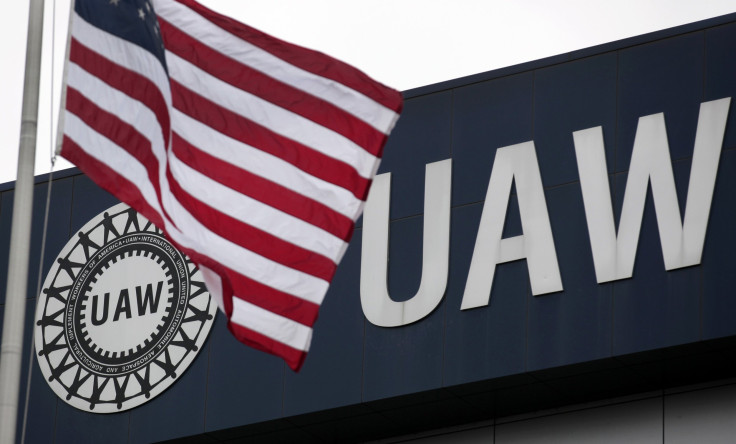Kohler Company Strike: Nearly 2,000 Wisconsin Plumbing Ware Workers Walk Off Jobs, Demanding End To Tiered Wages

In a small Wisconsin city on the banks of Lake Michigan, 1,800 workers are doing something that’s increasingly rare in the United States: They’re conducting a strike. Employees of Sheboygan's Kohler Company, a privately held company that makes plumbing products like faucets, sinks, showers and toilets, rejected the company’s contract proposal and walked off their jobs Sunday.
At a time when strikes by U.S. workers are at a historic low point and wages remain stagnant, the walkout marked an uncommon display of confidence on the part of labor. The last time Kohler workers went on strike was 1983. “The company has been taking it to us for many years now, and we’ve had enough,” Erick Koene, a Kohler employee who’s been at the company for more than two decades, told the Milwaukee Journal Sentinel.
Workers, who are represented by the United Auto Workers (UAW) union, said the company’s latest proposed agreement did not include enough improvements from the existing contract.
The current agreement, which workers accepted five years ago in the aftermath of the recession, included a set of far-ranging concessions: a wage freeze, increased healthcare contributions and, most notably, the creation of a tiered pay scale for new hires. Under the system, about 400 employees now earn about $12.50 an hour, compared with wages that range from $21.50 to $23.50 for senior employees, according to the union.
The economic landscape has shifted considerably since the Great Recession of 2007-09. While average earnings have barely budged, the national unemployment rate has dropped from 9.4 percent to 5 percent since October 2010. And as the Journal Sentinel notes, Sheboygan's regional economy has rebounded as well: The local unemployment rate is low and housing costs are rising.
Workers say they’re just asking for their share of the recent gains -- a set of demands that includes an end to tiered wages. A union official said a contract that abolishes the tiered pay system “would pass easily, maybe [with] even 100 percent.”
Employees demand a “fair contract,” but Kohler insists its last proposal met that criteria.
“It is a fair offer for all that continues to maintain local jobs above the region’s norm, supports continued permanent job growth at our Wisconsin operations now and for future generations and ensures all associates are financially ahead each year of the contract term,” the company said in a statement. “Kohler Co. is very disappointed that our final offer was not accepted by our associates and is concerned that union officials may have misrepresented what could be achieved in a strike. A work stoppage like this will unfortunately cost our associates and can negatively influence our desire to grow jobs in this location.”
Kohler Co. employees on strike Monday: https://t.co/cVT2DkdGLN pic.twitter.com/ryolDFccz5
— TODAY'S TMJ4 (@tmj4) November 16, 2015
Another, much larger bunch of UAW-represented workers in the manufacturing sector is also pushing for an end to tiered wages. Nearly a decade ago -- at a delicate time for the industry -- the so-called Big Three automakers all signed labor contracts that authorized them to pay new hires roughly half of what senior employees earn. This year, workers at Fiat Chrysler Automobiles approved a contract that will gradually phase out that system. Workers at Ford and General Motors have yet to ratify similar deals hammered out by negotiators. All in all, the auto agreements cover about 140,000 workers.
Harley Shaiken, a professor at the University of California, Berkeley, and expert in auto industry labor relations, said the FCA deal marked a turning point for the UAW, with the union emerging from years spent on the defensive.
© Copyright IBTimes 2025. All rights reserved.






















